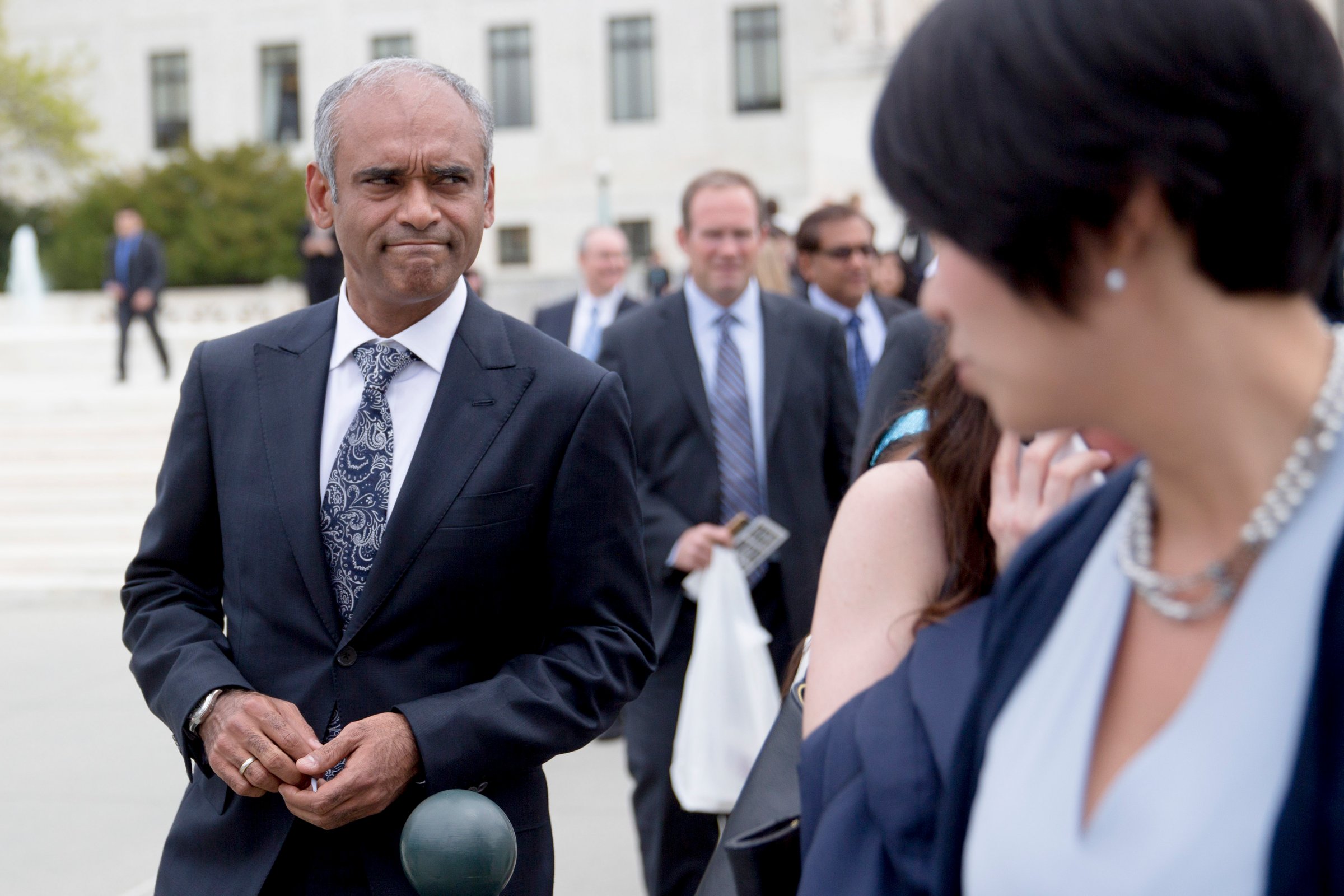
Television streaming startup Aereo was dealt a blow by the Supreme Court Wednesday, which, in a big win for broadcasters, ruled 6-3 it violates copyright law. Aereo’s CEO said afterwards that he’ll “continue to fight,” but even bigtime Aereo backer Barry Diller said the Court’s decision means the company will have to close up shop and cut the cord. The decision is bad news for all the other cord-cutters out there, too.
Aereo was one of the most influential innovations in broadcast television in years. Its subscribers pay about $8 a month for access to broadcast content on their web browsers, tablets and phones. Each Aereo subscriber gets access to a single tiny antenna, which captures broadcasters’ over-the-air transmissions and stores them in a remote DVR, which then sends the content to users. Aereo made many a cord-cutter very happy by making it easier to enjoy broadcasters’ content on the device of their choosing.
Of course, Aereo also posed a major threat to the broadcasters. They’re terrified of cord-cutting, or the trend of people dropping their television subscriptions and going Internet-only, relying on services like Netflix, Hulu and Aereo to replace their typical TV time. Even though broadcasters’ signals are already available for free to anyone in range, broadcasters make a big chunk of their money from the fees that cable and satellite companies pay for the privilege of retransmitting their signals to people not in broadcasters’ range. If more people ditch their cable or satellite TV subscriptions, that means less profits for the broadcasters, too.
Aereo’s interloping gave broadcasters two options: Either compete with it on services, or try to sue it out of business. The broadcasters banded together and chose the latter option, filing a suit two years ago that culminated in Wednesday’s Supreme Court decision in their favor.
For cord-cutters, it’s a shame the broadcasters went with Option B and then won at the Court. People are ending their cable and satellite television subscriptions because, aside from paying less, they want to be able to access their content anywhere, anytime. Cable and satellite companies have long known this, and many offer services that let you watch live TV in any room in your house, on a television or mobile device.
Broadcasters could’ve learned from their cable-and-satellite brethren, finding innovative ways to deliver their technically-free-anyway content in ways people actually want. But big incumbent players like broadcasters are resistant to internal innovation—unless an outside threat forces them to whip up something new.
Aereo has been and could have continued to be that force. If the broadcasters’ sue-the-pants-off-’em strategy didn’t work out, they would have had to find ways to compete with Aereo. That could have generated all sorts of unpredictable benefits for consumers on which we’ll now miss out: new apps, better quality streaming, maybe even wholly new and genre-redefining ways of consuming television content — it’s impossible to know for sure. And Aereo itself will soon be gone, too, leaving would-be cord-cutters with one fewer way to throw away their television and few better options on the horizon. Broadcasters’ message to cord-cutters? Cut it out, now.
More Must-Reads From TIME
- The 100 Most Influential People of 2024
- The Revolution of Yulia Navalnaya
- 6 Compliments That Land Every Time
- What's the Deal With the Bitcoin Halving?
- If You're Dating Right Now , You're Brave: Column
- The AI That Could Heal a Divided Internet
- Fallout Is a Brilliant Model for the Future of Video Game Adaptations
- Want Weekly Recs on What to Watch, Read, and More? Sign Up for Worth Your Time
Contact us at letters@time.com